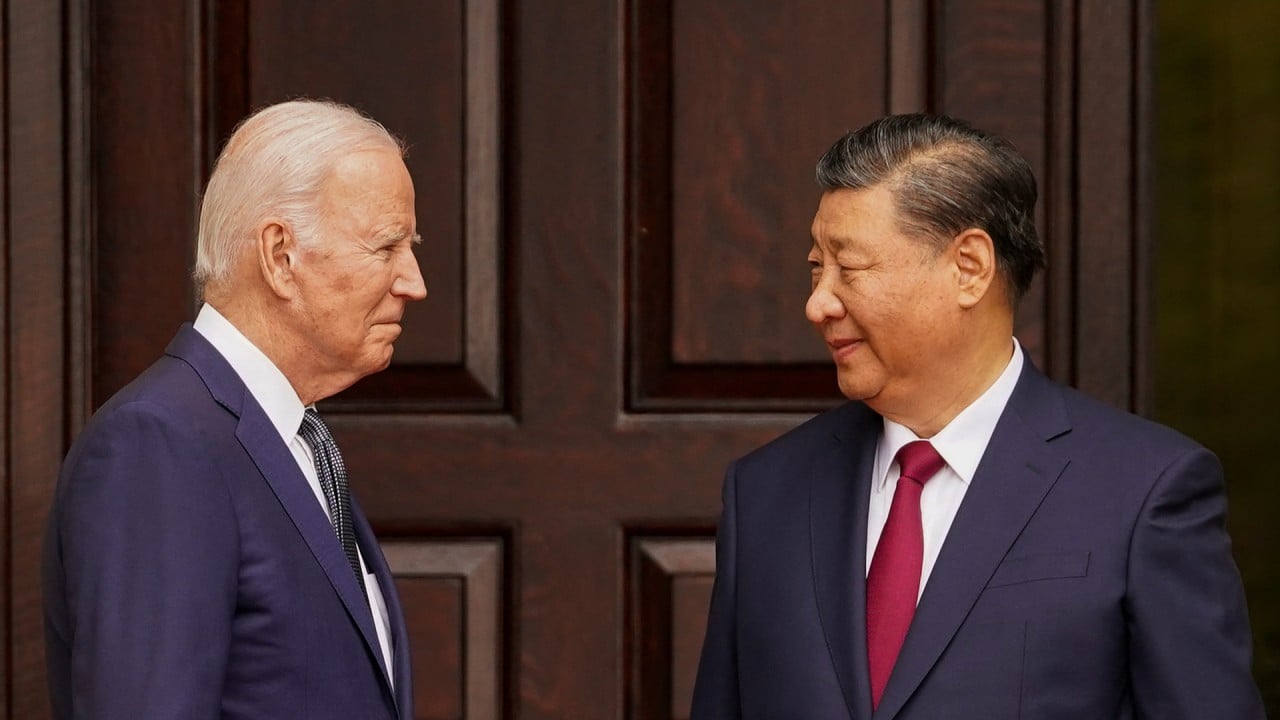Consensus no more? Following Biden, Democrats start to split from Republicans on China policy
- Congressional Democrats adopt Biden’s pursuit of ‘de-risking, not decoupling’, while Republicans hold to more hawkish stances
- Some analysts say shift may open up more room for diverse views and policies on Capitol Hill

“Bipartisan consensus” is the catchphrase in Congress when it comes to US-China relations, but partisan differences have become increasingly visible as the two parties ramp up their campaigns for the 2024 elections.
Ahead of the meeting between US President Joe Biden and Chinese President Xi Jinping in California last month, Senator Chris Van Hollen, Democrat of Maryland, said at an event co-hosted by Foreign Policy magazine and the Quincy Institute of Responsible Statecraft: “Those who say we shouldn’t be talking to China, we shouldn’t be travelling to China, are taking the wrong path.”
And following the meeting, which occurred on the sidelines of the Asia-Pacific Economic Cooperation summit, over a dozen congressional Democrats released statements applauding Biden’s engagement efforts.
“President Biden’s decision to combine vigorous competition with sustained diplomacy is not just prudent, it is paying off for the American people,” said Representative Gregory Meeks, the senior Democrat on the House Foreign Affairs Committee, and Representative Ami Bera, the senior Democrat on its Indo-Pacific subcommittee.
Earlier in the year, Meeks wrote that while there is “bipartisan consensus that China is the United States’ central geostrategic challenge,” the US “cannot confuse hawkishness for strategy, or bluster for strength”.
The Democratic tone differs drastically from that of Republicans, and comes as the Biden administration has combined a return to high-level diplomacy with a continued embrace of export controls on advanced tech and Trump-era tariffs on China.
